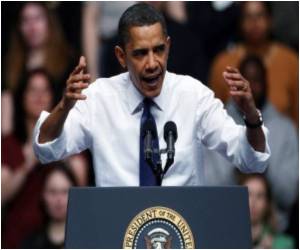If your heart starts pouncing and you start sweating by watching some awful pictures, then you are most likely to vote, say researchers.

Douglas Oxley at the University of Nebraska in Lincoln discovered that political conservatives react more strongly to shocking images and sudden noises by sweating more and blinking harder, compared with liberals.
To find out whether such physiological responses were also related to political action, Michael Gruszczynski, also at Nebraska, and colleagues asked 51 people about their degree of political participation, such as whether they voted or had ever contacted government officials.
The researchers then ran tiny currents across the volunteers' skin to monitor how much they perspired as they looked at pictures of sunsets, cute animals, fist fights and vomit - pictures already known to evoke an automatic sweat response.
The team found that the more a person sweated in reaction to the pictures, the more likely they were to actively participate in politics - with those whose perspiration increased the most around twice as likely to participate in political action as those who perspired the least.
Perspiration, according to Gruszczynski, was as good a match for political participation as a person's level of education - a stalwart measure in this field of research, reports New Scientist.
Advertisement
The results were presented last month at the annual meeting of the American Political Science Association.
Advertisement









